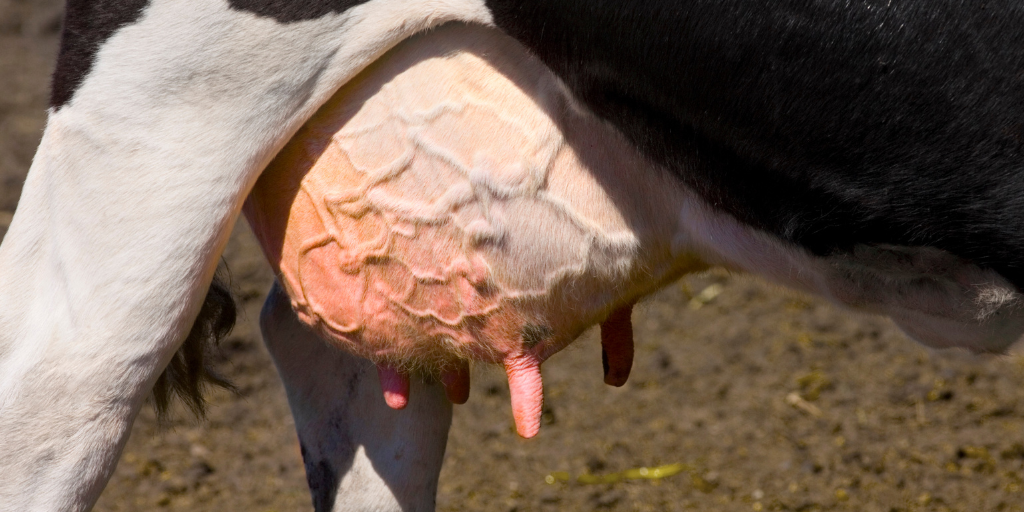The Cánovas lab at the University of Guelph is making significant strides in improving the health of Holstein dairy cows by investigating mastitis, a common infection in the animal’s mammary gland. Led by Dr. Angela Cánovas, a professor in the Department of Animal Biosciences and an OAC Chair in Phenomics and Systems Biology, the research team has identified 15 functional candidates that may significantly impact mastitis in Holstein dairy cows.
Through the Food from Thought-funded study of functional candidate genes, mRNA isoforms, and lncRNA regulatory elements, the team has been able to differentiate between a healthy and mastitic udder quarter, which refers to one of the four anatomical sections of a dairy cow’s udder. Each udder quarter contains mammary glands that produce milk and is typically examined and evaluated separately for signs of infections or other health issues.
“Our research findings will help to provide critical insight into the mechanisms of mastitis and enable the development of new treatments and management strategies for this pervasive disease,” said Dr. Cánovas.
The research conducted by the Cánovas lab has gained significant recognition, with lab members set to present some of their findings at the upcoming American Dairy Science Association (ADSA) conference in Ottawa this June.
Beyond their work on mastitis, the Cánovas lab is also investigating breeding livestock for climate resilience, another critical issue facing the dairy industry. The team’s work on both fronts is a testament to the University of Guelph’s commitment to advancing the field of animal science and improving the health and well-being of livestock around the world.
For more information on the Cánovas lab’s research, visit https://foodfromthought.ca/research/livestock/breeding-livestock-for-climate-resilience/


